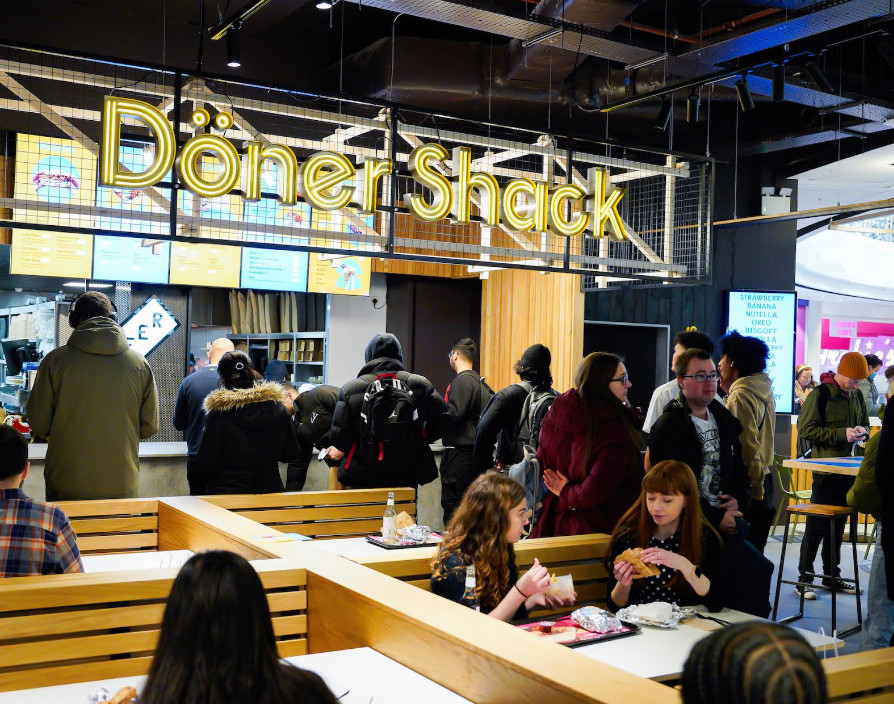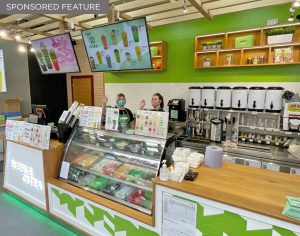The fast-casual boom in the UK’s restaurant industry is becoming increasingly hard to ignore. The fast-food and takeaway sector experienced enormous growth due to the pandemic, but recent data around property prices, consumer trends and industry flexibility is suggesting a reversal of fortunes. A 7.7% decline in the market size was predicted for 20211, with different business models, such as fast-casual, expected to enjoy more prominence and a greater share of the market.
The collapse of many of the UK’s biggest fast-food chains in recent years, coupled with the pandemic and Brexit, has reshaped the low-end landscape, meaning those who can afford to expand can do so quickly. And of course, the ability of brands to utilise social media means they no longer land in new territories with a standing start.
Sanjeev Sanghera, Co-Founder and Managing Director of Döner Shack, explains the reasons behind the fast-casual industry’s emergence and why the sector is showing the greatest potential for growth in the coming years, making now the prime time to invest.
Lower rental costs for commercial property
While the hospitality and restaurant sector has boomed in recent years, it has been a difficult time for retailers with many brands – large and small – ceasing to trade for good. This has created a challenge for commercial landlords, who now need to fill the empty space with new businesses. The pandemic has intensified the problem, with fewer businesses taking on new locations due to the uncertainty of their future.
For those businesses now looking to take up a lease, this means there are good deals to be done, helping to reduce overheads for the years to come. These low costs have created opportunities for fast-casual brands to accelerate their expansion to new sites both in the UK and globally.
Adaptability and flexibility
Over the past 18 months, fast-casual brands have not only learnt how to be adaptable and flexible, as shown by the demand for takeaway and delivery services, but their creativity and entrepreneurial spirt has also been tested. The resurgence of the restaurant industry since the lifting of restrictions in May 2020 proved there was a pent-up demand for eating out again.
As we are seeing once again with the new Omicron variant, the future is once again uncertain, and businesses need to be agile and quickly adapt so they can continue to operate efficiently. Fast-casual restaurants have the ability to be nimble, innovate and find ways to serve customers, whether that be dine-in, delivery, takeaway or click & collect.
Increased choice of food options
With people more conscious of what they are eating and wanting food that is healthier, less processed and more sustainable, fast-casual is able to meet this demand and become a more appealing choice for many. Typically, fast-casual restaurants serve healthier options and menu items prepared with fresher ingredients than fast food, creating unique flavours, fusions and cultural inspiration to fit the taste of any consumer.
There is also a demand at fast-casual restaurants for transparency in ingredients, a desire to be more socially responsible and a commitment to source local food and drinks. Increasingly, consumers want to know where their food is coming from and the ethical impact it has on the environment and labour around the world. They are also looking to create environmentally conscious and ethical decisions when it comes to their food choices, which means alternative diets such as veganism and vegetarianism are now making their way into restaurant menus.
“We understand that now more than ever that people don’t want to compromise when it comes to quality, taste and their dining experience, which is why we’ve taken our time to perfect each of these elements at our Döner Shack restaurants. We source the best quality products and only serve ethically sourced ingredients to ensure there is something for every taste and type of diet on our menu – from our lean high-quality kebabs to the free-range, gluten-free chicken thighs in the shawarma to the currywurst, halloumi, falafel and vegan schnitzel. It’s only once we’re happy and confident that we can provide the best customer experience that we open the doors to our restaurants.”
Overseas expansion into the UK
The pandemic has stimulated a desire for fast-casual brands to expand in the UK, and it has been widely recognised that success in the UK acts as a foot in the door to Europe. Once a brand shows it can succeed in unfamiliar territory, this stands it in good stead for overseas expansion. As demonstrated by Döner Shack with its forthcoming expansion into the USA in 2022, the demand for new food concepts and brands is rife across the pond also. It is just as likely that a strong proven business model in the UK can also succeed in the USA and Europe, which means expansion to other territories is extremely viable.
The pandemic has stimulated a desire for fast-casual brands to expand in the UK, aided by record-low retail property prices, a demand for another type of food and a pandemic proof business model. Where there are challenges, there is also an opportunity, and fast-casual is a category packed with potential. Fast-casual restaurants have become an important part of the British dining experience and lifestyle, and as consumer preferences for fast-casual restaurants continue to evolve, the industry is taking important steps to meet demand. With a unique combination of pent-up demand, government stimulus and commercial incentives, there has never been a better time to invest in a restaurant franchise.
1. IBISWorld – Takeaway & fast-food restaurants in the UK, Market Size 2010-2028



































